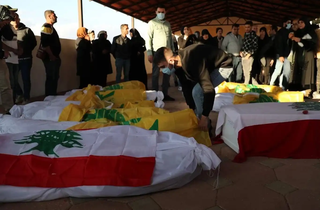The report highlighted widespread destruction, significant loss of life, and the dire humanitarian situation resulting from the ongoing aggression.
Over the past 48 hours, Israeli forces conducted 300 airstrikes across various regions in Lebanon, with the highest concentration in Nabatieh (131 strikes) and South Lebanon (135 strikes). Since the onset of hostilities, the total number of recorded airstrikes has risen to 13,522.
According to the Ministry of Public Health, 35 people were killed, and 143 others were injured in the past 24 hours alone. This brings the total casualty figures since the beginning of the aggression to 3,516 deaths and 14,929 injuries.
The humanitarian toll continues to escalate, with 1,173 accredited shelters now operational to house internally displaced persons (IDPs). However, 981 of these shelters have reached full capacity.
The total number of IDPs in accredited shelters has climbed to 187,992 individuals, representing 44,322 families. The majority of these displaced individuals are concentrated in Mount Lebanon and Beirut.
Between September 23 and November 18, Lebanese General Security documented significant cross-border movements. A total of 385,555 Syrian citizens and 225,328 Lebanese citizens have crossed into Syria during this period.
Lebanon’s agricultural sector has suffered extensive damage. The Ministry of Agriculture reported that 70% of the sector has been affected either directly or indirectly by the attacks. Thousands of hectares of farmland have been destroyed, including the devastation of 65,000 olive trees caused by white phosphorus shelling.
The report underscores the multifaceted impact of the conflict, from the strain on humanitarian resources to the crippling effects on Lebanon’s agricultural economy. As the aggression continues, the toll on human life, infrastructure, and essential services escalates, amplifying the need for immediate international intervention. (ILKHA)



 Güncel
Güncel
 Dünya
Dünya
 Güncel
Güncel
 Dünya
Dünya
 Dünya
Dünya
 Güncel
Güncel
 Dünya
Dünya
 Güncel
Güncel
 Röportaj
Röportaj
 Röportaj
Röportaj





